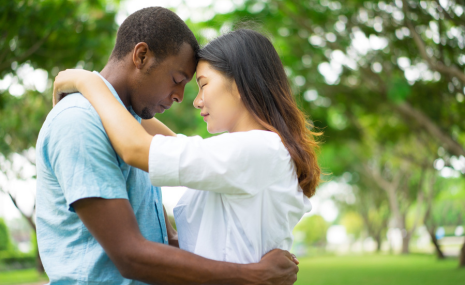Are there dangers to racial colorblindness?
 Most of us usually take the colorblind approach as a way to challenge racism. Most of us teach our children to focus on the similarities within people of different races as opposed to dealing directly and constructively with what makes races different and challenging the bias that different races face. Much as the intentions behind the “I don’t see color approach” are good ones; a recent research from the Kellogg School of Management begs to differ with the colorblind approach to racial diversity.
Most of us usually take the colorblind approach as a way to challenge racism. Most of us teach our children to focus on the similarities within people of different races as opposed to dealing directly and constructively with what makes races different and challenging the bias that different races face. Much as the intentions behind the “I don’t see color approach” are good ones; a recent research from the Kellogg School of Management begs to differ with the colorblind approach to racial diversity.
The research dubbed “In Blind Pursuit of Racial Equality” carried out on elementary school children... colorblindness is seen as a peril in that it blinds the individual from recognizing overt incidences of racial discrimination, thereby hindering the ability of adult intervention.
Find your soulmate on AfroRomance










According to Evan P. Apfelbaum, one of the researchers that conducted the study, “Teachers were less likely to see the need for intervention because the students’ descriptions in the colorblind condition played down the race-related nature of the transgressions. In a real-world situation, bullying on the basis of race could go unnoticed by onlookers or be mistaken for ordinary misconduct by teachers who receive insufficient information to recognize it as discrimination.”
In the case of an actual bias, colorblindness (logic as it seems) poses a danger because students will tend to turn a blind eye to or fail to recognize racially motivated incidents. And in Apfelbaum’s words, colorblindness “...sometimes elicits the exact opposite outcome, permitting even explicit forms of racial discrimination to go undetected and unaddressed.”
Most of us employ this strategy in the hopes that it will lead to equality. In fact on the surface, reported cases of discrimination have decreased. But does the decrease of reported incidents actually mean that we are successfully doing away with racial inequality or that colorblindness only “adjusts the lens through which bias is perceived”? If the latter is the case then it means that colorblindness may be causing more damage than the encouraging signs of reduced reported cases of bias.
If teaching our children racial bias makes them overreact to such incidents; and teaching them the colorblind approach hinders their capability to identify and confront instances of actual discrimination, what do you think is the best approach to employ?
Responses to "Are there dangers to racial colorblindness?"
Be the first to leave a comment
You must be logged in to post a comment.
















































